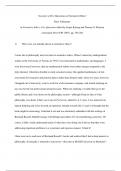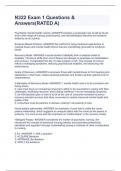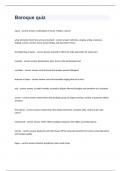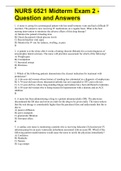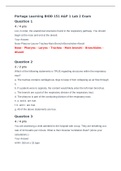Tentamen (uitwerkingen)
Answers to Five Questions on Normative Ethics”
- Vak
- Instelling
“Answers to Five Questions on Normative Ethics” Peter Vallentyne in Normative Ethics: Five Questions edited by Jesper Ryberg and Thomas S. Petersen (Automatic Press/VIP, 2007), pp. 195-204 1) Why were you initially drawn to normative ethics? I came late to philosophy and even later ...
[Meer zien]
